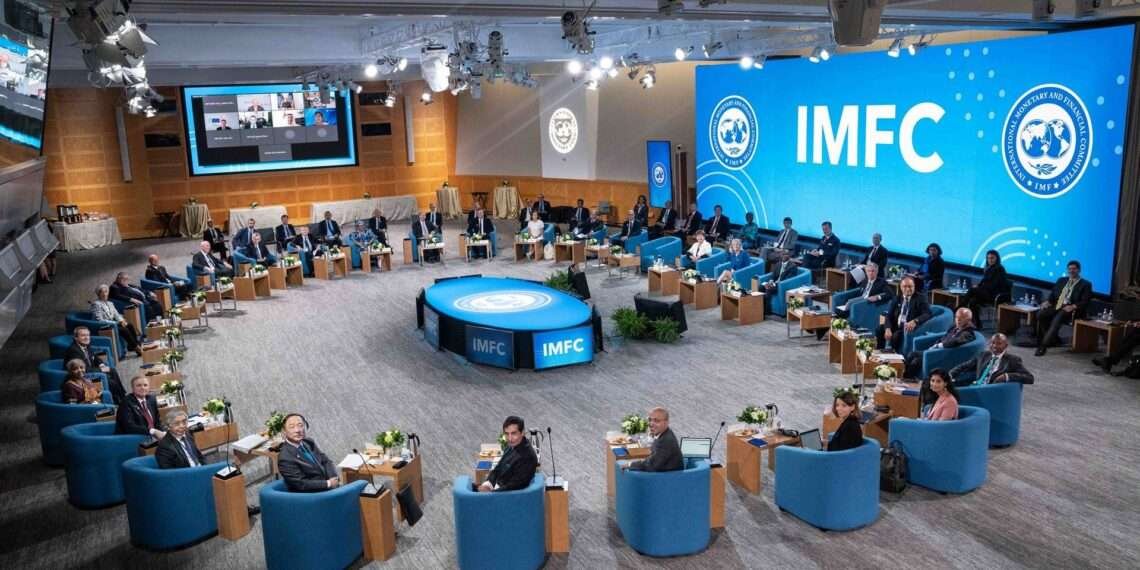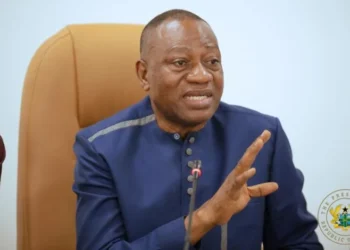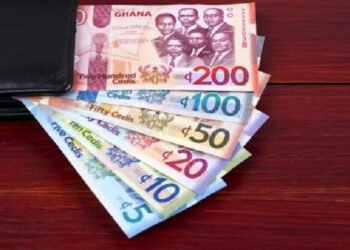The International Monetary Fund (IMF) has expressed renewed confidence in Ghana’s economic trajectory, following the successful completion of the fifth review under its ongoing bailout programme.
The Fund’s latest assessment marks a major turnaround from earlier reviews, as it highlighted Ghana’s strong policy performance, progress in stabilizing inflation, and sustained efforts in the financial and energy sectors.
According to IC Research, the IMF’s Executive Board is expected to approve the fifth review of Ghana’s economic programme in December 2025. This follows a staff-level agreement reached between the Government of Ghana and the IMF mission in October 2025, after the authorities met all six quantitative performance criteria and four indicative targets for the period ending June 2025.
The anticipated approval will pave the way for the disbursement of approximately US$385 million, a critical inflow that will bolster Ghana’s foreign exchange reserves. This financial support comes at a strategic time, ahead of the country’s January 2026 Eurobond debt service, which is estimated at US$689 million.
IC Research noted that this development represents a major vote of confidence from the IMF, signaling that the Fund believes Ghana’s reform efforts are yielding tangible results and that the economy is on a sustainable recovery path.
IMF Strikes a More Positive Tone
Unlike the cautious tone that characterized earlier programme reviews, the IMF’s fifth review has adopted what analysts describe as a “bullish” tone. IC Research pointed out that the Fund’s latest language reflects a more confident and optimistic assessment of Ghana’s economic performance and near-term prospects.
The IMF praised the authorities’ efforts to stabilize the financial sector, describing the actions taken as “strong.” The Fund also acknowledged “notable strides” in addressing deep-seated challenges within the energy sector, one of the most persistent issues in Ghana’s fiscal landscape.
This upbeat tone stands in sharp contrast to the previous reviews, where the Fund’s assessment of Ghana’s performance gradually weakened—from “strong” in the first review to “generally satisfactory” by the third, and eventually describing a “marked deterioration” in the fourth. The renewed optimism in the fifth review, therefore, marks a significant shift in the IMF’s overall outlook on Ghana’s economic management.
Macroeconomic Stability Taking Root
The IMF’s conclusion that “macroeconomic stabilization is taking root” is one of the strongest endorsements of Ghana’s policy direction in recent years. Inflation, which had reached alarming levels in 2022 and 2023, is now projected to remain within the Bank of Ghana’s medium-term target range of 8.0% ±2.0%. This improvement in price stability has created room for a cautious normalization of monetary policy.
IC Research observed that this development reflects the Fund’s confidence in the durability of Ghana’s disinflation trend. The Bank of Ghana’s careful approach to monetary policy adjustments has been instrumental in maintaining balance between curbing inflation and supporting growth.
The ongoing fiscal consolidation efforts, including revenue mobilization and prudent expenditure management, have also contributed to the overall macroeconomic improvement. According to analysts, these measures have helped restore investor confidence and stabilized the cedi’s exchange rate.
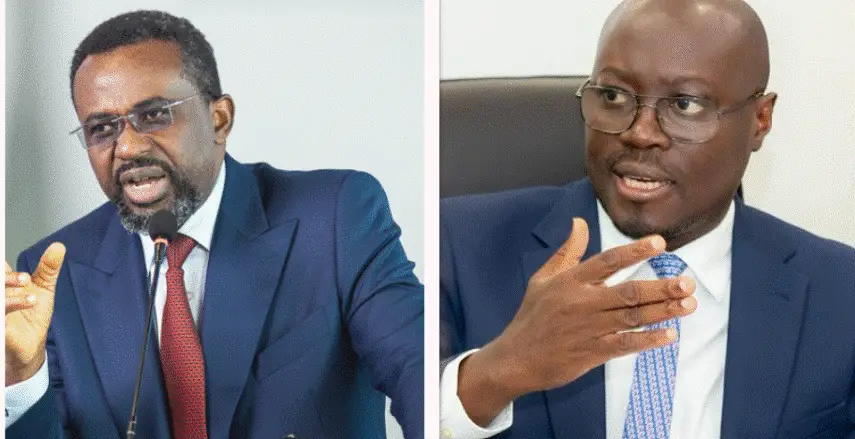
The IMF’s commendation of Ghana’s financial and energy sector reforms underscores the government’s sustained commitment to structural transformation. Over the past year, authorities have implemented measures to strengthen financial sector stability and ensure that banks remain adequately capitalized.
The energy sector, which has long been a drag on Ghana’s fiscal balance due to inefficiencies and accumulated arrears, is also showing signs of recovery. The government’s continued efforts to restructure energy-related debts and improve operational efficiency have earned recognition from the Fund as “notable strides.” These initiatives are expected to reduce fiscal pressures and enhance the sustainability of the sector.
IMF Projects Continued Growth and Confidence into 2026
In its outlook, the IMF projected that Ghana’s economic momentum will continue into 2026, supported by ongoing policy consistency and reform implementation. The Fund believes that the current positive trajectory in fiscal and monetary indicators will translate into improved growth prospects, enhanced investor confidence, and stronger external buffers.
This sentiment aligns with IC Research’s forecast that Ghana’s net international reserves, which stood at US$8.4 billion as of August 2025, will continue to improve and remain above the programme target of three months of import cover by 2026. Such a buffer provides a safety net for the country’s external position and reinforces confidence in its ability to meet external obligations.
The IMF’s optimistic tone also suggests that Ghana could benefit from a smoother path toward future disbursements, provided that current reforms are sustained. With macroeconomic stability taking hold, the country may gradually transition from recovery to growth, creating space for investments in productive sectors.
Analysts have interpreted the IMF’s endorsement as a strong signal to investors that Ghana’s economy is regaining credibility on the global stage. The positive tone of the fifth review, coupled with the anticipated inflow of IMF funds, is expected to support the cedi, ease pressure on interest rates, and improve overall market sentiment.
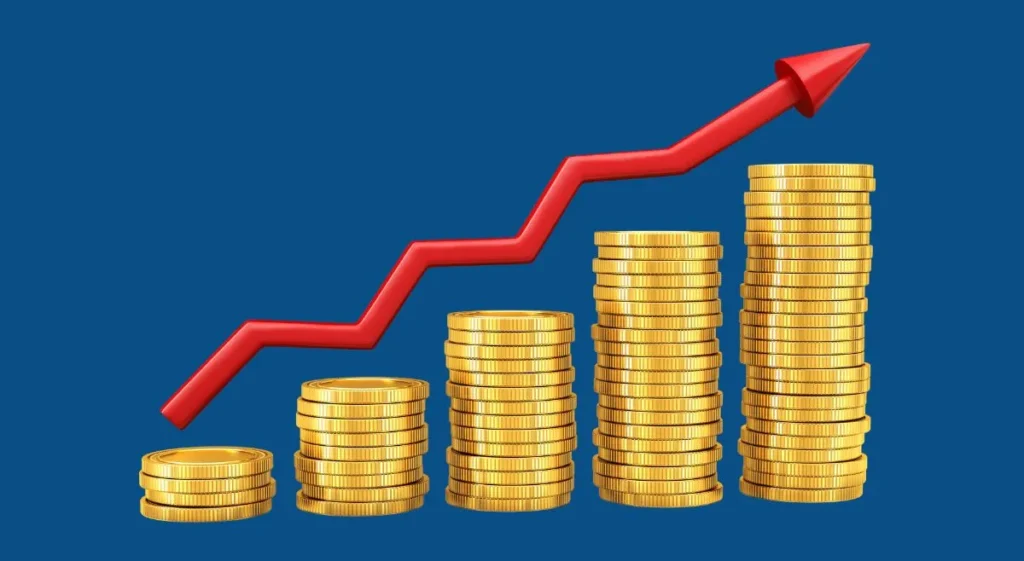
“Ghana’s progress under the IMF programme reflects a broader recovery in macroeconomic discipline and policy credibility,” one analyst observed. “The Fund’s endorsement of these gains will likely attract renewed investor confidence and position Ghana favorably in future capital market engagements.”
The IMF’s endorsement of Ghana’s policy gains and its projection of sustained positive momentum into 2026 represent a significant milestone in the country’s economic recovery journey. With inflation stabilizing, reserves strengthening, and reforms deepening in key sectors, Ghana appears to be on a steady path toward long-term stability.
READ ALSO:Market Bloodbath: Only Clydestone Survives as Major GSE Stocks Sink into Red

